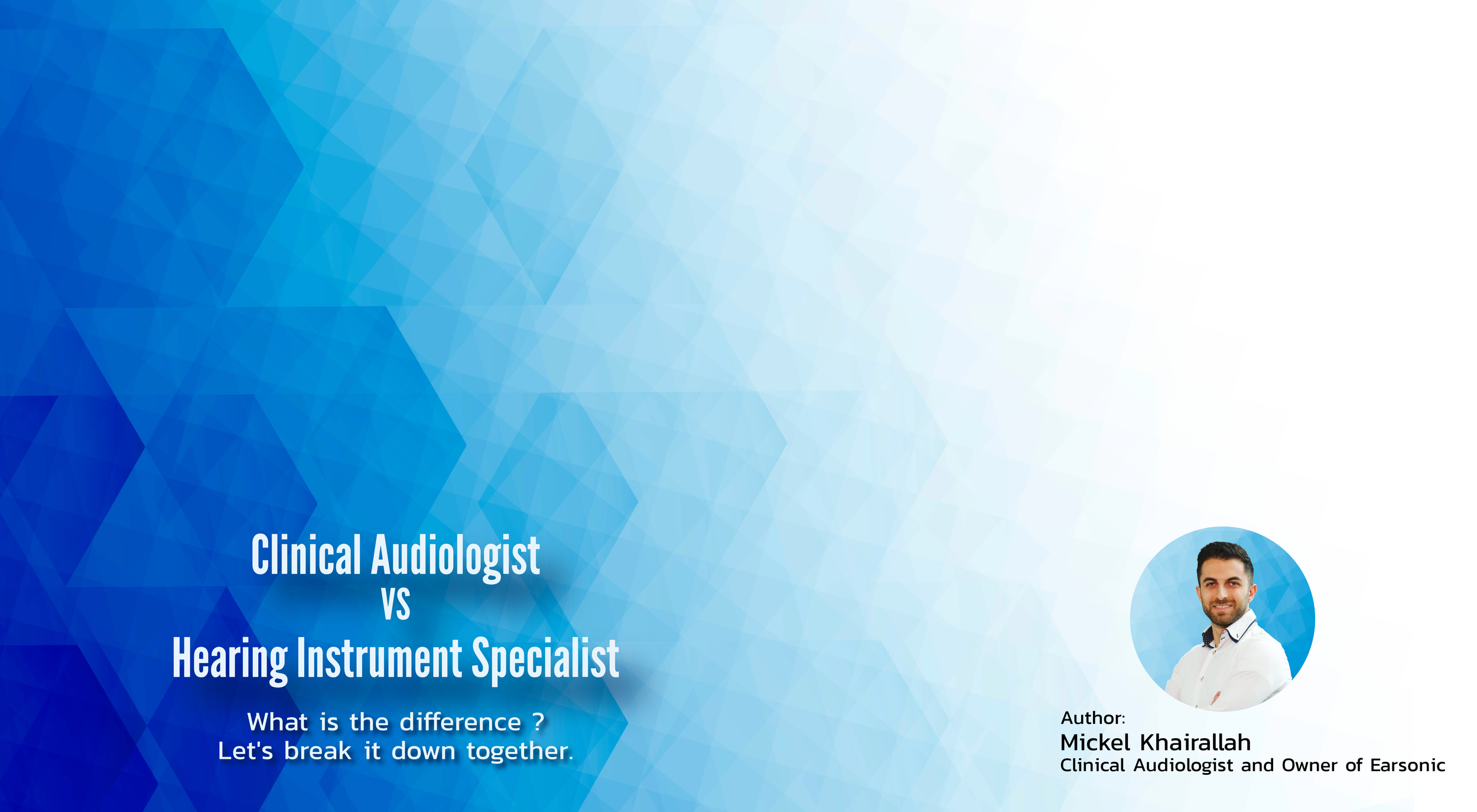

Audiologist vs. Hearing Instrument Specialist
What’s the Difference?
When you’re looking for help with your hearing, you might come across two types of professionals: audiologists and hearing instrument specialists (HIS).
At first glance, they might seem similar — after all, both help people hear better. But there are important differences in their education, training, and the services they offer.
Let’s break it down in simple terms.

An audiologist is a highly trained regulated and registered healthcare professional specializing in the examination, diagnosis, treatment, and management of hearing loss, balance disorders, tinnitus, auditory processing disorders, and other auditory conditions.
Education and Training:
Audiologists complete a Master’s Degree or a Doctorate in Audiology (Au.D.) (minimum of 5 years of University education).
Their education covers advanced anatomy and physiology of the ear and brain, auditory disorders and pathologies, neurological connections, and advanced diagnostic techniques.
All Audiologists gratuated in Canada are highly trained in :
Hearing science and acoustics,
Diagnosis and treatment of hearing loss,
Cochlear implants and hearing aid technology,
Pediatric and geriatric audiology,
Balance (vestibular) disorders,
Tinnitus management,
Counseling and patient communication.
Audiologists must pass rigorous licensing exams and complete several clinical internships and residencies in all audiology specialties.
What Audiologists Do:
Conduct comprehensive hearing and balance diagnostic assessments.
Diagnose conditions such as hearing loss, tinnitus, vertigo, and auditory processing disorders.
Prescribe and fit hearing aids (important legal distinction).
Provide hearing rehabilitation, counseling, and long-term management.
Work with patients of all ages, from newborns to seniors.
Where Audiologist can work ?
Hospitals
Private hearing clinics (like Earsonic!)
ENT (ear, nose, and throat) specialist offices
Schools (especially for helping kids with hearing issues)
Universities (doing research or teaching)
Rehabilitation centers
Companies that make hearing aids and medical devices
Important Legal and Regulatory Role in Ontario
Audiologists are regulated by the College of Audiologists and Speech-Language Pathologists of Ontario (CASLPO).
This regulation ensures that patients receive care according to strict professional, ethical, and clinical standards.Why regulation matters:
Being regulated by a government-recognized body means that if a patient ever feels they were mistreated, received substandard care, or experienced a problem, they have the right to file a formal complaint directly with the College.
The College investigates concerns and can hold audiologists accountable — offering patients protection, transparency, and peace of mind.In contrast, if a healthcare provider is not regulated, patients have no ability to file a complaint with a government body — making it harder to seek justice or correction if something goes wrong.
Audiologists are the only health care professionals (along with physicians) authorized to prescribe hearing aids.
In Ontario, when applying for the Assistive Devices Program (ADP) to receive up to $1,000 toward hearing aids, only an audiologist can sign the necessary ADP paperwork as a prescriber.Audiologists can also certify forms for the Disability Tax Credit (DTC).
For individuals experiencing significant hearing challenges, an audiologist can complete the necessary sections of the DTC application, potentially helping patients access additional tax benefits.In Ontario, audiologists’ examinations and certifications are recognized by all government third-party agencies, including WSIB (Workplace Safety and Insurance Board), VAC (Veterans Affairs Canada), ODSP (Ontario Disability Support Program), and CNESST (Commission des normes, de l'équité, de la santé et de la sécurité du travail). This recognition allows audiologists to provide essential documentation for a variety of disability benefits and compensation programs, ensuring patients can access the necessary financial support and care services.
What is an Audiologist?

What is a Hearing Instrument Specialist (HIS)?
A hearing instrument specialist in Ontario is a (unregulated) health care professional that focuses mainly on hearing screenings and hearing aid fittings for adults with uncomplicated hearing loss. Although hearing instrument specialists are not regulated by a government body, they are overseen by a professional association.
Education and Training:
HIS complete a specialized hearing instrument training program that last 2 years on average.
They must pass a licensing exam to dispense hearing aids in the province.
What Hearing Instrument Specialists Do:
Perform hearing screenings to detect hearing loss.
Fit, adjust, and maintain hearing aids (after getting a prescription by an audiologist or physician).
Educate patients about device care and use.
Refer patients to audiologists or physicians if medical conditions are suspected.
Important Notes:
Hearing instrument specialists (HISs) cannot prescribe hearing aids (they can recommend hearing aids).
They cannot sign ADP forms as prescribers to grant patients access to government funding.
They cannot certify disability tax credit forms.
They cannot examine patients that are under the age of 18.
They are not permitted to fit, program, or adjust advanced hearing devices like cochlear implants or bone-anchored hearing aids.
HISs working in Ontario are not regulated by a government-recognized College like Audiologists are.
This means patients do not have the same formal complaint protections.
